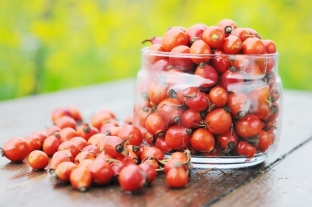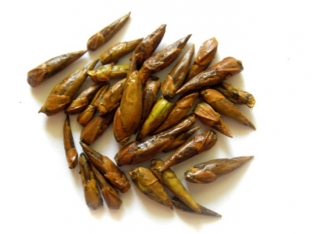Cystitis – urinary system disease, inflammation of the bladder mucosa. Due to physiological characteristics, women are more susceptible to this disease. In addition, cystitis during pregnancy often returns with the slightest hypothermia, and in especially advanced cases it becomes acute and can turn into urethritis. Cystitis during pregnancy is almost inevitable, but its exacerbation can be prevented – the tips and recipes from this article will help you with this. Medications will be prescribed by the attending physician, and methods of non-apparatus treatment are given below.
Cystitis. Treatment of cystitis during pregnancy
In the cold season or in drafts, you can catch a lot of cold. One of the consequences of a cold can be cystitis.
There are many ways to prevent cystitis during pregnancy:
- dress for the weather;
- do not get cold;
- do not put off going to the toilet;
- do not wear synthetics;
- choose underwear made from natural fabrics;
- observe personal hygiene;
- keep a healthy lifestyle;
- do not abuse harmful goodies (smoked meats, spicy, alcohol).
During pregnancy, the treatment of this disease becomes more complicated, since women “in position” many drugs are contraindicated. What to do? After a mandatory consultation with a doctor, you can use folk remedies and medicines at your discretion. It is important to stick to a diet, get more rest and walk in the fresh air for at least 30 minutes a day. Drink more warm teas, waters, herbal infusions. Do not drink alcoholic beverages. Avoid constipation, drink mild laxatives when needed, eat fruits, especially apples, even baked ones.
Folk remedies for the treatment of cystitis during pregnancy: recipes
Traditional methods of treating cystitis during pregnancy are given below.
- Milk foot baths.
3 l. boil the milk and wrap it up.
Pour 1 liter into the basin, immerse the legs in milk, wrap yourself in a woolen blanket and soar the legs until the milk cools down, add hot milk as it cools down.
After the last addition, wipe your feet. Put on socks and slippers.
Pour used milk into the same pan, cool and store in the refrigerator for repeated footbaths.
These baths are simply magical and harmless to all mommies. You can repeat them both until the disappearance of all symptoms of cystitis, and for seasonal prophylaxis (2-3 times).
- Wild Rose Hurries to Help.
4 st. l. finely chopped rosehip roots pour a liter of water.
Boil the decoction for 15 minutes, cool and strain.
Take half a cup 4 times a day, half an hour before meals.

- Poplar buds for the treatment of cystitis.
2 Art. l. finely chopped poplar buds (not silver);
2 Art. pour boiling water over the kidneys.
Infuse for 2-1.5 hours.
Take half a glass 3-4 times a day for 30 minutes. before meals.
- Alcohol tincture on poplar buds.
10–15% in 40–70% alcohol.
Take 20–40 drops per 1/3 cup. warm milk/water 3–4 times a day before meals.

Signs of cystitis during pregnancy. Symptoms and suspicions
Cystitis can be caused by colds, hypothermia, and pathogens. If a woman suffering from cystitis becomes pregnant, this can lead to serious complications and even termination of pregnancy in the early stages. Human immunity is quite fragile, and for a woman's body, pregnancy – this is additional stress on a global scale. You need to get rid of cystitis before pregnancy, but if your plans for procreation coincided with another cold, don't be upset – we'll fix it!
First of all, check if you really got cystitis. Symptoms of cystitis during pregnancy:
- strong and frequent urge to go to the toilet without much need to go out;
- burning sensation during urination;
- the presence of blood in the urine;
- strong-smelling and cloudy urine;
- discomfort in the groin;
- a feeling of heaviness in the lower abdomen;
- increase in body temperature.
If you have confirmed your suspicions of cystitis during pregnancy, you need to consult a gynecologist. Often, unpleasant symptoms are associated with an infection caused by bacteria (E. coli, Candida, Ureplasma) and STDs. Then you definitely need a doctor and a urine test.
There is also non-infectious cystitis:
- medicinal – reaction to honey drugs;
- allergic – for food products (nuts, legumes, cabbage);
- thermal – hypothermia, a sharp drop in air temperature from + to - (in the subway or in transport after the street).
To treat cystitis, your doctor may prescribe:
- painkillers;
- antispasmodics;
- herbal infusions and oils (for external use, sea buckthorn oil, green tea oil).
- bed rest;
- abstinence from sex until the end of treatment.
Be sure to follow your doctor's advice!






Add a comment